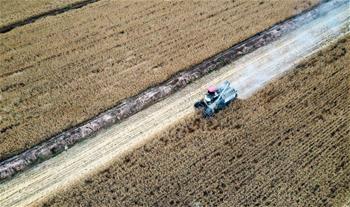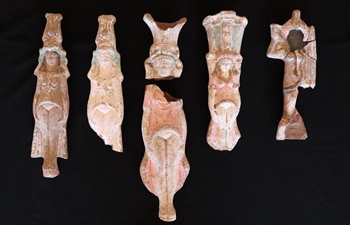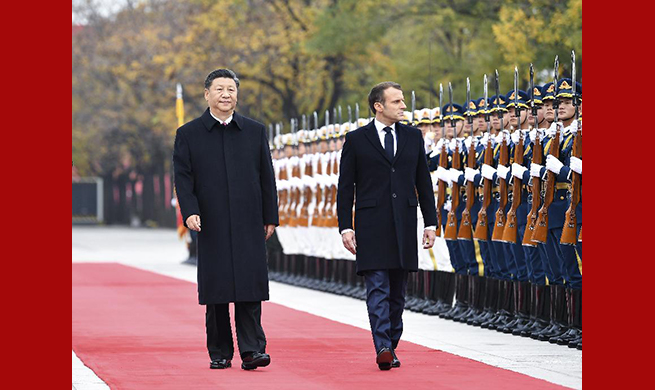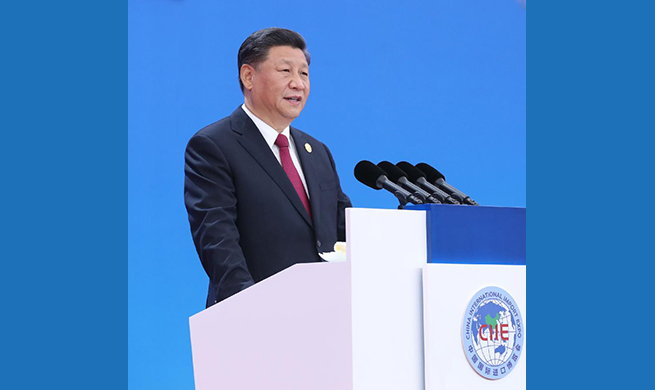by Dana Halawi
BEIRUT, Nov. 6 (Xinhua) -- Local experts agreed that Lebanese central bank's circular issued on Monday requesting banks to increase their core capital by up to 20 percent by the end of June 2020 while retaining banks' profits in the capital without distributing dividends in 2019 is a preventive measure aimed at strengthening the sector amid difficult economic conditions.
One economist, who spoke to Xinhua on condition of anonymity, said that the increase of banks' capital reduces the exposure of these banks to the public debt, noting that banks in Lebanon hold the majority of the government's debt.
"When banks' capitals increase, they can better absorb shocks. Banks taking such measures are not to be much impacted by an eventual default of the government on its debt," the economist said.
The economist noted that the central bank governor might have known ahead of time or foreseen Moody's Investors Service's plan on Tuesday to downgrade Lebanon's credit rating from Caa1 to Caa2, which prompted him to issue this circular on Monday.
Moody's said that the downgrade to Caa2 reflects the increased likelihood of a debt rescheduling or other liability management exercise that may constitute a default under Moody's definition since opening the review for downgrade of the Caa1 ratings at the start of October.
Layal Mansour, an economist and lecturer at the Lebanese American University, explained that the downgrade did not come as a result of the capital increase decision by the central bank because rating agencies need time to study each country's case to issue their reports and it does not happen in one day.
However, the central bank governor might have made this decision because he expected the downgrade to take place due to capital flight since people have started saving money in their houses out of fear of losing their money amid the current financial crisis.
Lebanon has witnessed in the past few months a shortage in U.S. dollars due to the economic slowdown and the drop in cash injections from Lebanese abroad, reducing the central bank's foreign currency reserves, leading to a shortage in dollar for both businesses and individuals.
Hence, banks put restrictions on withdrawals of depositors and converting Lebanese pounds to U.S. dollars, which has created panic among the Lebanese.
According to Mansour, this has caused the central bank to decide the increase of banks' core capital.
"No banks assets can cover 100 percent public debt which is too high in Lebanon and it is not the role of the bank to cover the government's debt. However, the increase in the banks' capitals help in minimizing the risks for banks against an eventual default of the government," she said.
Fadi Daouk, general manager of Bank Misr Liban, told Xinhua the recapitalization of banks sends positive signals to correspondent banks.
Daouk added that the increase of banks' capital helps in covering non-performing loans when the economic situation of a country is bad and the risk of companies defaulting on their loans is high.
Nassib Ghobril, an economist and head of the economic research department at Byblos Bank, believes the central bank governor's measure does not mean that there is an emergency but this is considered a preventive measure amid the current difficult economic conditions.
"This measure comes at a good time as some companies have loans challenges, not to forget the high borrowing needs of the government," he said.

















